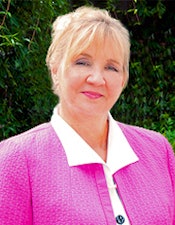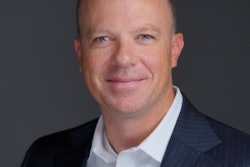
In a 2016 survey of dentists done by NEA Powered by Vyne, we asked the question, "What are some of the most frustrating or challenging aspects of managing the business side of your practice?"
An overwhelmingly popular response was "managing insurance companies, their reimbursement schedules, rising fees, and lower reimbursements."
 Lindy Benton is the CEO and president of Vyne.
Lindy Benton is the CEO and president of Vyne.Additionally, the 2016 Levin Group Annual Practice Survey report shows more than a quarter of dentists (26%) admit to being unfamiliar with their practice finances. Part of the reasoning here is obvious: Providers most often want to focus on care, not back-end business issues related to finances, claims processing, and, even surprisingly, getting paid.
But as leaders of practices, as in life, we can't spend every bit of our day doing exactly what we want or spend every day of our lives on vacation. As the saying goes, if in life there is no rain, our lives would be nothing but a desert. In essence, the dreary work must be done alongside the work that makes us feel like we're walking in the sun.
There are ways to manage and automate some of these tedious processes, though, especially the ones we can't stomach. For dental providers seeking ways to streamline their financial processes, choosing the right IT partners can help with these efforts. Take a look at claims management; this is a complex problem made simple through technology and partnership with a vendor.
Automating claim submission and claim attachment processes can help practices adjudicate claims faster, which means you receive reimbursements faster. Automating these processes also leads to fewer errors, reduces paper, and greatly increases the security of information transferred from the practice to payors and health plans.
As more payors move away from accepting paper claims and attachments to a world of totally electronic claim processes for adjudication, having a plan in place to move your practice beyond paper processes is critical. Having a plan to do this with the right IT vendor is even more critical.
Claim attachments
Let's take a look at the claims management problem for a moment, as it is likely one area of your practice that could benefit the most while requiring the least amount of attention. For some perspective, in the 2014 Council for Affordable Quality Healthcare (CAQH) Index, responding health plans representing 103 million enrollees returned data on claim attachments. From those responses, one in every 24 claims included a claim attachment as supporting documentation. So, this area of managing a dental practice is a big deal that often doesn't make many headlines.
Interestingly, the vast majority of claim attachments were submitted manually via paper delivery or fax. CAQH counted approximately 46 million claim attachments processed among the plans reporting, which can be extrapolated to roughly 110 million claim attachments industry-wide. CAQH also estimates another 10 million prior authorization paper attachments. This statistic suggests a total of 120 million attachments annually across the industry.
Given the enormity of this issue and the likely trend pointing to the reality that payors are going to allow fewer paper submissions, it seems plausible that more and more practices will likely begin to implement electronic claim attachment solutions.
If you're one of the thousands of practices that have not yet made the move away from paper, you need to be prepared. How? Engage now, ask questions, and prepare for process changes that will streamline your finances.
Looking at the specific example of seeking an electronic claims attachment vendor, you need to ask certain questions to make sure you're getting what you think you're paying for and that you're not jeopardizing the data security of your practice.
When potential clients speak with me about adding our electronic claim attachment services to their practices, here are some of the questions I hope they'll ask me:
- What security protocols does your claim attachment solution follow to ensure the security of protected health information managed by my practice?
- Will you sign a business associate agreement (BAA)?
- How much experience do you have specifically with claim attachment submissions?
- What percentage of claim attachments do you transmit electronically versus via paper?
- How many payors and health plans are you connected to electronically specifically for claim attachments?
- Do you charge for training?
- Do you charge for technical support?
- What is your track record with lost attachments?
- How many attachments do you submit monthly?
- What types of training and support resources are available for me and my staff?
- What happens if/when I have staff turnover and need retraining on the software?
You, too, should be asking these questions. If you take the time to ask your potential vendor partners, you'll likely find the best long-term partner for your practice, one that does its best to help your business succeed by streamlining processes and improving your bottom line.
Like any potential partnership, all parties should be excited about the possibility of working together, about what lies ahead -- about what the partnership is intended to do and the anticipated outcomes.
But practice leaders must beware -- not all vendors are created equal. Providers should live by the old Russian proverb made famous by Ronald Reagan during the late 1980s while negotiating with the Soviet Union: "Trust, but verify."
In other words, it's better to look closely before you leap.
Lindy Benton is CEO and president of Vyne, a provider of secure healthcare communications, electronic attachment, and health information exchange solutions for hospitals and dental practices.
The comments and observations expressed herein do not necessarily reflect the opinions of DrBicuspid.com, nor should they be construed as an endorsement or admonishment of any particular idea, vendor, or organization.



















